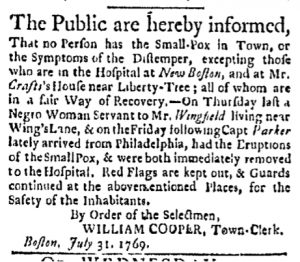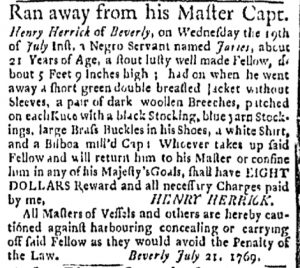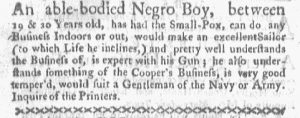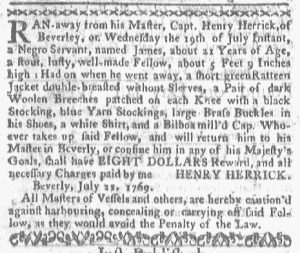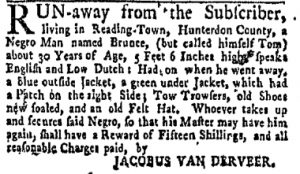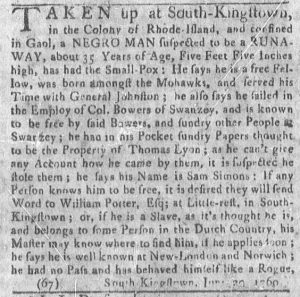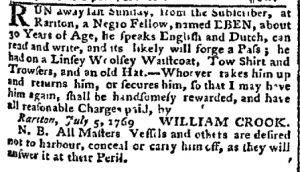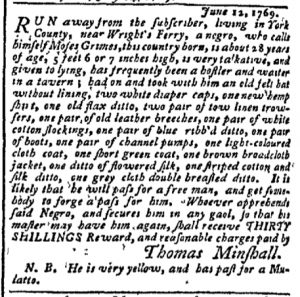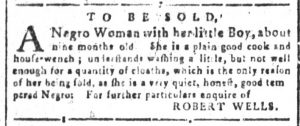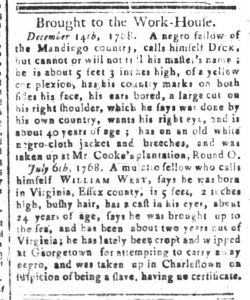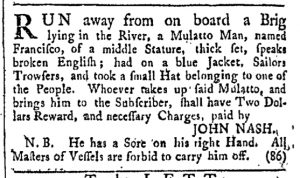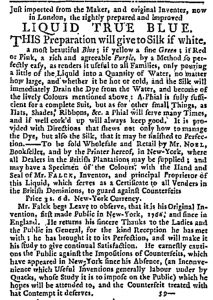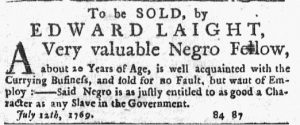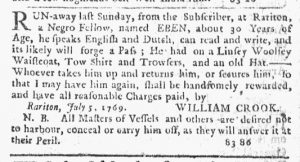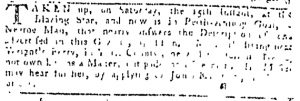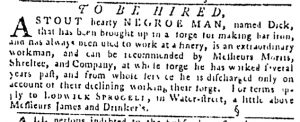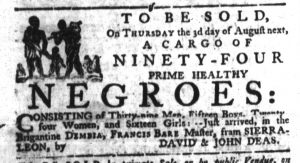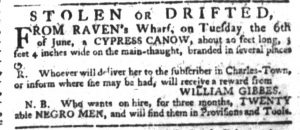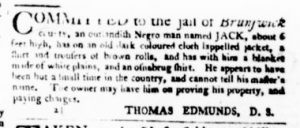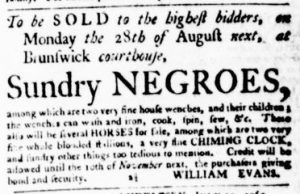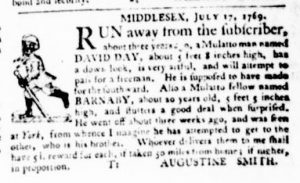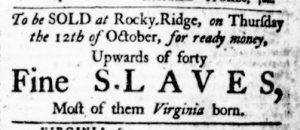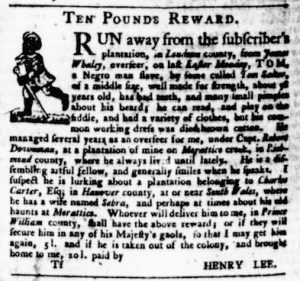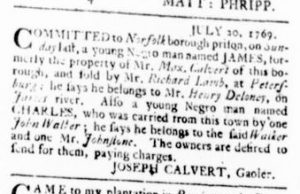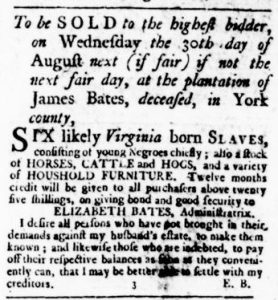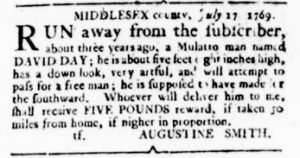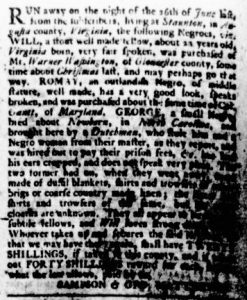What was advertised in a colonial American newspaper 250 years ago today?

“The Shoe-making Business is still carried on at her Shop.”
Elizabeth Mumford did not insert herself into the public prints until necessity forced her to do so. When her husband Samuel, a cordwainer, passed away in the summer of 1769, she ran advertisements in the Newport Mercury calling on “her late Husband’s Friends and Customers” to continue to patronize the family business. She referred to the shop on New Lane as “her Shop” and reported that she employed John Remmington, “who has work’d with her late Husband several Years.” Former customers may have been familiar with Remmington already, having interacted with him in the shop in the past. Whether or not they had previously made the acquaintance, Mumford underscored that the “Shoe-making Business” continued without disruption and that customers could “depend on being served with as good Work of every Sort as in her Husband’s Life-time.” Remmington’s presence provided continuity in the production of shoes, but Mumford likely made other contributions, such as waiting on customers and keeping accounts.
Mumford, however, downplayed any role that she had played or continued to play in the family business as partner, supervisor, or assistant. Instead, she presented herself as a widow who happened to own the shop yet otherwise depended on the good will of others. She reported that Remmington continued working at her Shop “for the Benefit of her and her Children,” making her appeal to “her late Husband’s Friends and Customers” all the more poignant. Without husband and provider, the widow and children found themselves in a vulnerable new position. Mumford crafted her advertisement to encourage sympathy and a sense of collective responsibility for her family among friends and patrons. She took what steps she could in engaging Remmington’s continued employment at her shop, but that did not matter if their former customers did not return in the wake of Samuel’s death. In other circumstances, the quality of the shoes produced in the shop on New Lane may have been sufficient promotion in newspaper advertisements, but Mumford did not consider that enough following the death of her husband. She crafted a narrative with greater urgency even as she noted the continuities in the shop. As a widow she enjoyed new financial and legal powers, but she tempered her portrayal of herself as an independent entrepreneur in her efforts to retain her husband’s clientele and “the Continuance of their Favours.”


